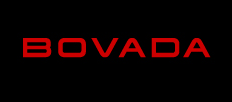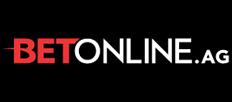Deposit options available to online poker players from the United States have decreased significantly in recent years. Americans can still make deposits to online poker rooms – they just have a smaller slate of options to choose from.
Here is a quick guide to the laws that shape the financial side of the industry, details about available deposit methods, and a state-by-state breakdown of American poker room restrictions.
Easiest Deposit Poker Site for 2020!
Top Poker Rooms
-
1Ignition Casino
- Texas Holdem for Real Money
- Best Texas Holdem Poker Site
- Variety of Poker Bonuses
- Very Fast Cashouts
Deposit Options include:Compatible with:BONUS 100% up to $1,000 -
1Bovada
- Top Real Money Poker Sites
- Loose Holdem Poker Games
- Fast and Secure Payouts
- Large Weekly Guaranteed Tournaments
Deposit Options include:Compatible with:BONUS 100% up to $500 -
1888 casino
- $88 Free Bonus
- Large Real Money Poker Site
- Excellent Reputation
- High Quality Real Money Games
Deposit Options include:Compatible with:BONUS 100% up to $200BONUS 100% up to €140BONUS 100% up to £100 -
1Bet Online (International)
- Top USA Holdem Site
- Excellent Payment Processing
- Play Real Money Texas Holdem
- Fast Cashouts
Deposit Options include:Compatible with:BONUS 100% up to $2500
Online Poker and US Law
Online poker for real money has only existed since 1998. In its brief history, Web-based American poker has gone through four distinct stages of legality:
The Pre-Regulation Stage, 1998 – 2006
This was probably the best time to be an online poker player, as few restrictions by any US government entity were in place, besides a few laws in state penal codes that were mostly ignored. During this time, Texas Hold’em entered the mainstream, and American players were able to choose between a variety of online casinos and poker rooms.
The UIGEA Stage, 2006 – 2011
In US poker history, the passage of the Unlawful Internet Gambling Enforcement Act in 2006 represents a sea change in political attitude towards the game. The UIGEA was passed as part of an anti-terrorism bill in 2006. It prohibits financial institutions that do business in America from processing transactions made with “known online gambling entities.” The law forced some big players in the industry to leave the US market.
The Black Friday Stage, 2011 – 2012
Most online poker rooms that hadn’t closed after the UIGEA in 2006 would do so after Black Friday in 2011. This was the day that indictments against the three largest providers of online poker in the United States were handed down. Looking back, this was by far the darkest period of online poker play in the US, with high-profile arrests and the disappearance of several previously popular poker brands and rooms.
The State-Licensure Stage, 2012 – Present
Things are looking a little brighter for online poker-playing Americans. In 2012, the state of Nevada issued their first license for interactive gaming. This made online gambling legal in the state, provided players were located inside Nevada borders and played at licensed online poker rooms or casinos only. The states of Delaware and New Jersey would later pass similar legislation. Some think that these changes are a sign that online gambling in the United States is regulated by states rather than the federal government.
Online Deposit Options for U.S. Players
Here are details on three popular deposit options for US-based poker players:
Credit Cards – This option works well for players in states with licensed gambling, but outside of those states it can be a real toss-up. That’s because banks and credit card companies are loathe to get on the bad side of the Department of Justice. Apparently, some American-based players can make credit card and debit card deposits, but even for these lucky few it’s not a guaranteed proposition.
Wire Transfer – Probably the simplest way for Americans to transfer funds to and from online gambling sites. Using Western Union or another wire service as a courier is a legal loophole around the UIGEA’s restrictions. Wire transfers are by far the fastest and most-reliable deposit and withdrawal option for American gamblers, although it’s not the most convenient as you’ll have to physically visit one of their kiosks or offices.
Bitcoin – This virtual currency isn’t catching on as fast as some would hope, mainly because it’s way more complex to acquire and use than any other form of money. Still, Bitcoin can be redeemed for cash, and it appears to be an easy way to transfer funds to poker rooms and casinos provided they accept it.
Poker Room Restrictions by State
If you’re concerned about the legality of playing online poker, keep in mind that legislation differs from one state to another. While all gaming rooms may be available to a player in one part of the United States, the selection a few miles away can be radically different.
This list details poker rooms that have elected not to offer their services in certain states. If you live in one of the states not included, then you should have a complete selection to choose from.
Delaware – According to 2012 laws, a poker provider can only offer games to a customer if they’re physically within the boundaries of Delaware. Bovada, Carbon, Full Flush, Pokerhost, and Winning Poker are not available in this state.
Hawaii – Pokerhost is not offered in the Hawaiian Islands. The state has always taken a firm stance against land-based gambling, but more modern options have fallen into a legal grey area.
Kentucky – Operating an online poker room within Kentucky is against the law, but this impacts the providers and not the players. Carbon, Intertops, Juicy Stakes, and Pokerhost are not available.
Louisiana – While the state doesn’t approve of online gambling, players are still free to open accounts without fear of prosecution. Carbon, Juicy Stakes, and Pokerhost have refrained from making their services available.
Maryland – This state has aggressively pursued those offering online gaming to their residents, but no private citizen has been arrested. Bovada, Carbon, Chico, Full Flush, Juicy Stakes, Pokerhost, and Winning Poker cannot be accessed from within state borders.
Missouri – While the state frowns upon online gambling as a general rule, there are no laws on the book that prohibit it. Carbon, Intertops, Juicy Stakes, and Pokerhost cannot be reached via your Mac or PC.
Nevada – Bovada, Carbon, Full Flush, and Pokerhost, and Winning Poker are inaccessible. Under the current laws, a casino or poker room can only operate legally if they obtain a license from the state and players are within the borders of Nevada.
New Jersey – Bovada, Carbon, Full Flush, Juicy Stakes, and Pokerhost, and Winning Poker do not accept customers from this state. Much like Nevada, the only sites allowed to operate legally are those that have been licensed by the state (and paid a hefty fee).
New York – Bovada, Carbon, Juicy Stakes, and Pokerhost have opted to restrict customers. Despite this fact, players are free to wager their money without fear of prosecution.
Utah – Carbon and Pokerhost are not offered in this state. While almost all forms of vice are illegal within Utah, no residents have been arrested or charged with playing online poker.
Virginia – Pokerhost is the only poker room not currently offered in this state, although the legality of gambling in Virginia remains a grey area.
Washington, D.C. – While the law doesn’t specifically permit online poker in the District of Colombia, players don’t have to worry about being prosecuted. Carbon, Poker Host, and Winning Poker are out of reach of residents.
Washington State – A 2006 law made online gambling illegal within the state, and this was upheld by a 2010 Supreme Court ruling. Despite this fact, there’s yet to be a case of a private citizen being arrested for online gaming. Carbon, Juicy Stakes, Pokerhost, and Winning Poker are restricted in this scenic U.S. state.
While there aren’t as many US poker deposit options available as there were before 2006,some are optimistic about the increased availability of legal poker in the future. An increasing number of states are allowing licensed online casinos and poker rooms to operate within their borders, and some in the federal government are encouraging the United States to move in the direction of regulation. Once the US poker market opens up legally, it won’t be long before new payment processors appear to service the flood of new customers.




